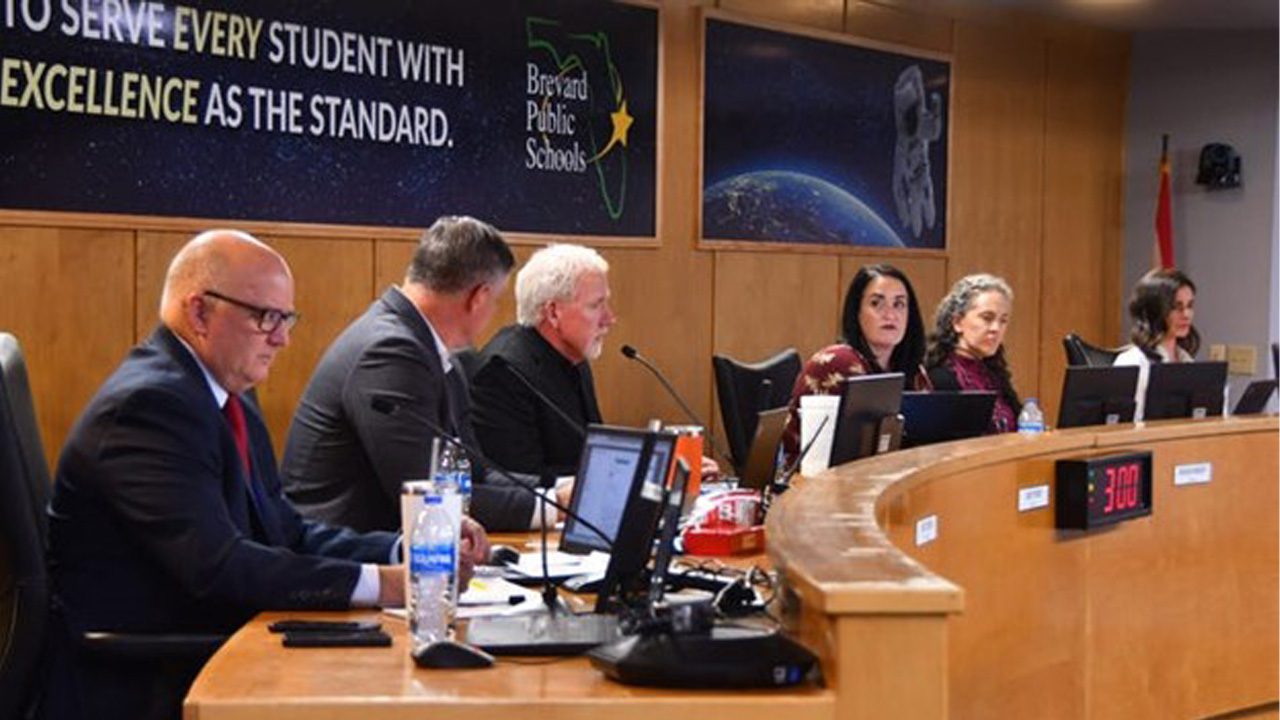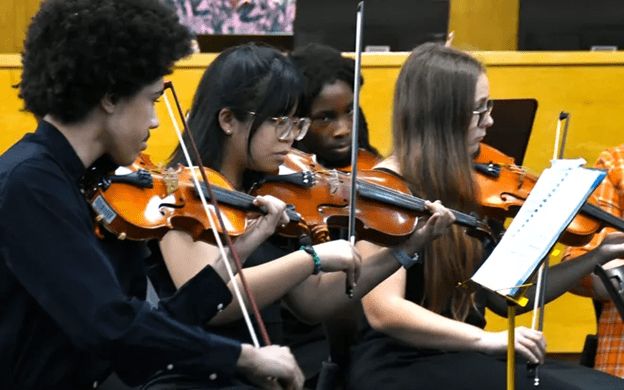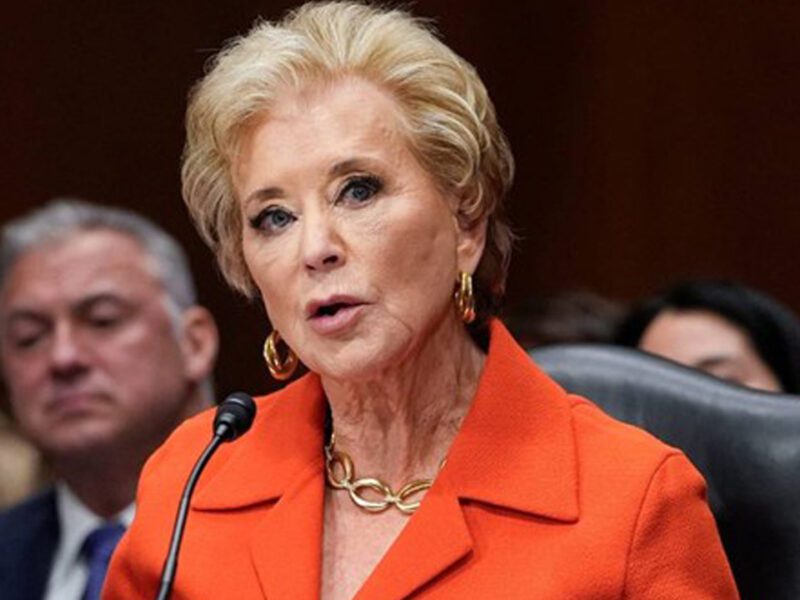
‘Changing the narrative’: Attorney counsels Brevard school board on improving public image
Florida Today | By FInch Walker | January 16, 2024
With the goal of “changing the narrative” about Brevard’s school board and how they function, the board hosted a local attorney at their first work session of the year in search of advice for improving their public image.
The board, which has consisted of the same members since the November 2022 election, has faced public scrutiny for a number of actions, beginning with the removal of former superintendent Mark Mullins at their first meeting and continuing with the handling of implementing various state rules.
“If the board improves, our school district improves,” said Board Chair Megan Wright, who asked the attorney to attend the session.
Much of the advice from Kendall Moore, a Rockledge-based attorney who grew up on the Space Coast, focused on working together and showing one another respect. While the board is getting work done, he said, the bickering among them is largely what’s creating a negative perception for the public.
“You are actually turning out the (policies),” he said, adding that he had reviewed the past four board meetings prior to the work session. “It’s that pathway of how you get there that ultimately can become the problem.”
‘You cannot be upset … if they treat you the same way you treat each other’
Moore encouraged the board to consider how they’re perceived by the public, with members Jennifer Jenkins, Katye Campbell and Wright responding with adjectives such as “dysfunctional,” “self-serving,” “distracted” and “a joke.”
Despite the general consensus, board member Matt Susin said how the board is viewed varies widely between different members of the public.
“We’ve accomplished a lot over the last year,” he said. “When they … see the people that know what we’ve done, they’re like, ‘They are moving forward, they are doing stuff,’ but the political governance becomes a circus between people that are coming to speak, between the political divides and between the parties, and that’s what creates this aura of non-governance.”
While Board Vice Chair Gene Trent agreed that much has been accomplished since the new board was elected, Jenkins challenged that position, saying the positive changes haven’t come at their hands.
“I would argue that all the incredible things that have happened for BPS over the past 12 months were actually a responsibility of our staff and our teachers, not the work of the board or drive of the board,” she said.
“I think we need to be honest about that — like what board-led initiative did we do in the past 12 months that made significant changes for our students?”
Board members came to a general consensus that the view of the board is often driven by their interactions with one another during meetings. This was an area that could use improvement, Moore said, adding that maybe the board’s policy related to how they operate with one another could be revisited. It might be worthwhile, Moore suggested, to bring in a consultant to ensure they are following policy and see if perhaps they should change it.
“I would suggest … that you go back and have a consultant come in and walk through that policy with you to make sure that it is still viable, the right thing to do, the best thing in those scenarios,” he said.
“But every individual has to make a personal commitment that they are going to follow it, and as you said, no other board member can be the policeman over honesty, the policeman over respect.”
The discussion of public perception strayed heavily into the topic of how the public interacts with the board, with board members bringing up frustration at how they are spoken to.
While Moore empathized, he said the board needs to set an example for the public in how they interact with one another, adding that a high-schooler who had attended a recent board meeting told him that if they’d behaved in the same way the board did, they would have faced discipline.
“You cannot be upset about the way the public reacts, if they treat you the same way you treat each other,” he said.
“You’ve got to be careful about that. Some of them mimic the behaviors that they see from you … it’s hard for you to tell a person at the microphone that it’s not going to be tolerated when they just listened to you do it to each other.”
There was disagreement among board members how much public perception matters, with Trent saying everything outside of what they’ve accomplished is “just dogs barking in the background.”
“The main reason I ran is (to prioritize) what’s best for the students while keeping an eye on the parents, because you need both of them to buy in on this product,” he said.
Trent was less concerned with other’s opinions, he said.
“As far as news agencies or people not reporting what we actually did … that’s just white noise, don’t care,” he said. “You can get up and act a fool at a school board meting, don’t care. You can sneak around the board, don’t care, because we’re doing good things for the students, and ultimately, that’s why we’re there.”
Campbell disagreed with the premise, saying it’s not fair to constituents.
“We can’t say from the dais, ‘Forget the public. Forget this person who disagrees with me. Who cares? Whatever.’ That’s a constituent,” she said.
At some point, even people who board members align with will disagree with them, she said. But it’s still their job to listen.
“I have to listen, because that person — even if I completely disagree with where they’re coming from, and I’m not going to do what they told me to do — they are someone,” Campbell said.
“They’re a human being, and they made the effort, and if nothing else, I can just have a total blank face (as I listen). A lot of times, they’re a parent, and sometimes they’re coming from a place of hurt, and I can have empathy for that even if I don’t agree and I’m not going to make a policy change they’re asking for.”
Controversies over the past year
The board has tackled numerous contentious issues since its election in November 2024. At its first meeting, then-Superintendent Mullins was removed, a move proposed by Wright and backed by Trent and Susin. His replacement, Robert Schiller, was put on administrative leave in March 2023 after a public falling out. Sue Hann, assistant superintendent of facilities, served as acting superintendent until Mark Rendell took over the role in June.
Many of the issues the board has tackled have involved navigating state legislation and rules passed down by the Florida Board of Education. This year alone, new requirements from the state have included permission forms for all extracurricular activities; permission forms for students who wish to go by a name that is not their legal name; House Bill 1069, which lays out guidelines regarding what can and can’t be taught in classrooms or kept in school libraries; the requirement to segregate all bathrooms and changing facilities by sex assigned at birth; and more.
These rules and laws, often vaguely worded, are left open to interpretation by the board, their attorney Paul Gibbs and Rendell.
Additional contentious topics have come up at board meetings this year, including whether or not to arm staff as part of the state’s guardian program, the handling of a hazing incident at Viera High School and the specifics on how the book review committee should be run.
Even dealing with the height of the pandemic and facing debates about masking students weren’t as tough as this year, Campbell said.

TIM SHORTT/FLORIDA TODAY
These rules and laws, often vaguely worded, are left open to interpretation by the board, their attorney Paul Gibbs and Rendell.
Additional contentious topics have come up at board meetings this year, including whether or not to arm staff as part of the state’s guardian program, the handling of a hazing incident at Viera High School and the specifics on how the book review committee should be run.
Even dealing with the height of the pandemic and facing debates about masking students weren’t as tough as this year, Campbell said.
“The last year was the hardest year of five,” she said. “But when we can … focus on the work, even if we disagree, those are the times where I walk out and go, ‘We did good work today.'”





